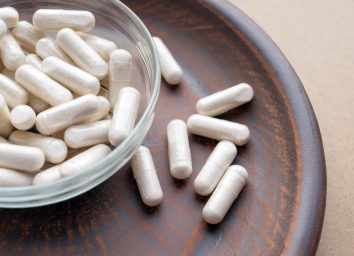The Worst Supplements to Take After 50, Say Experts
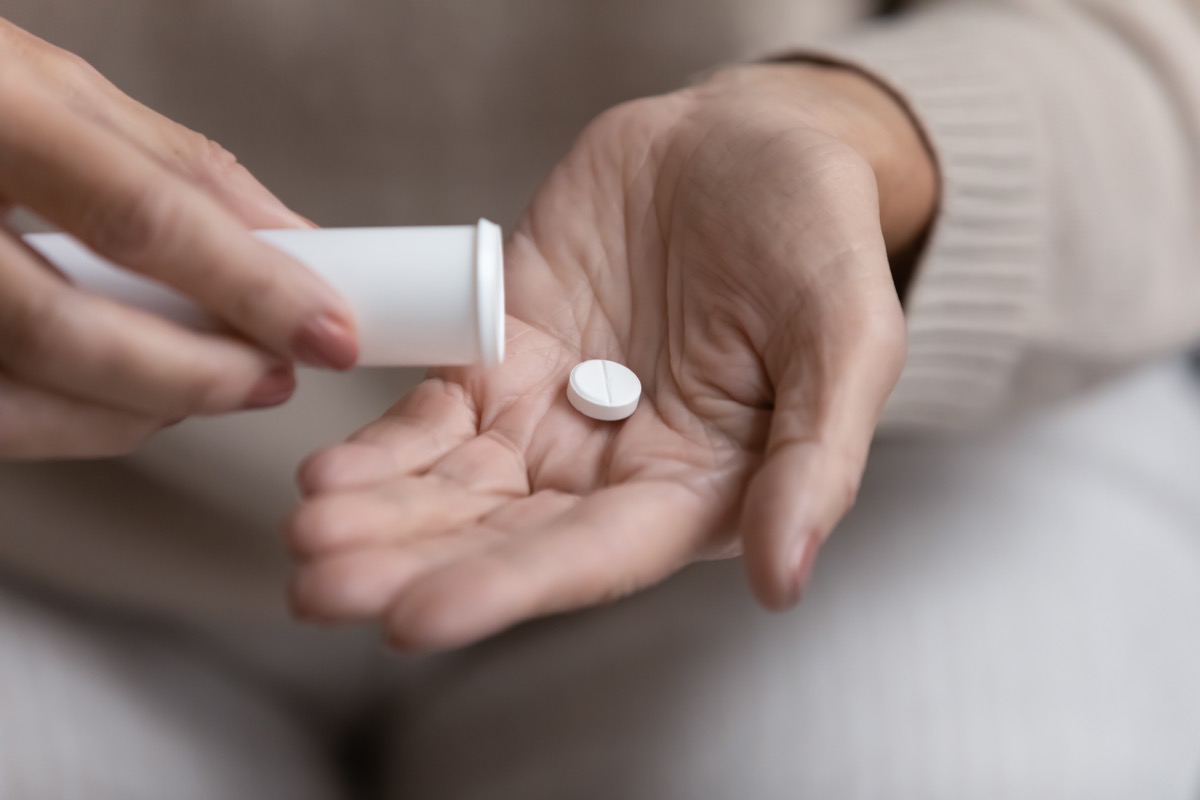
Whether you're looking to reduce the symptoms of certain chronic health issues or increase your longevity, supplements are part of many people's daily routines. While there are countless supplements out there that can have major benefits for your health and wellbeing, practically any medication or supplement comes with some risks.
Though it's wise to do your research—and talk to your healthcare provider—before taking new supplements at any age, experts say that people over 50 should exercise particular caution when making additions to their supplement routine. Read on to discover which supplements experts say could be especially detrimental to your health after 50. And for some supplements worth taking, check out the Best Supplements To Buy at Costco, Say Experts.
Calcium
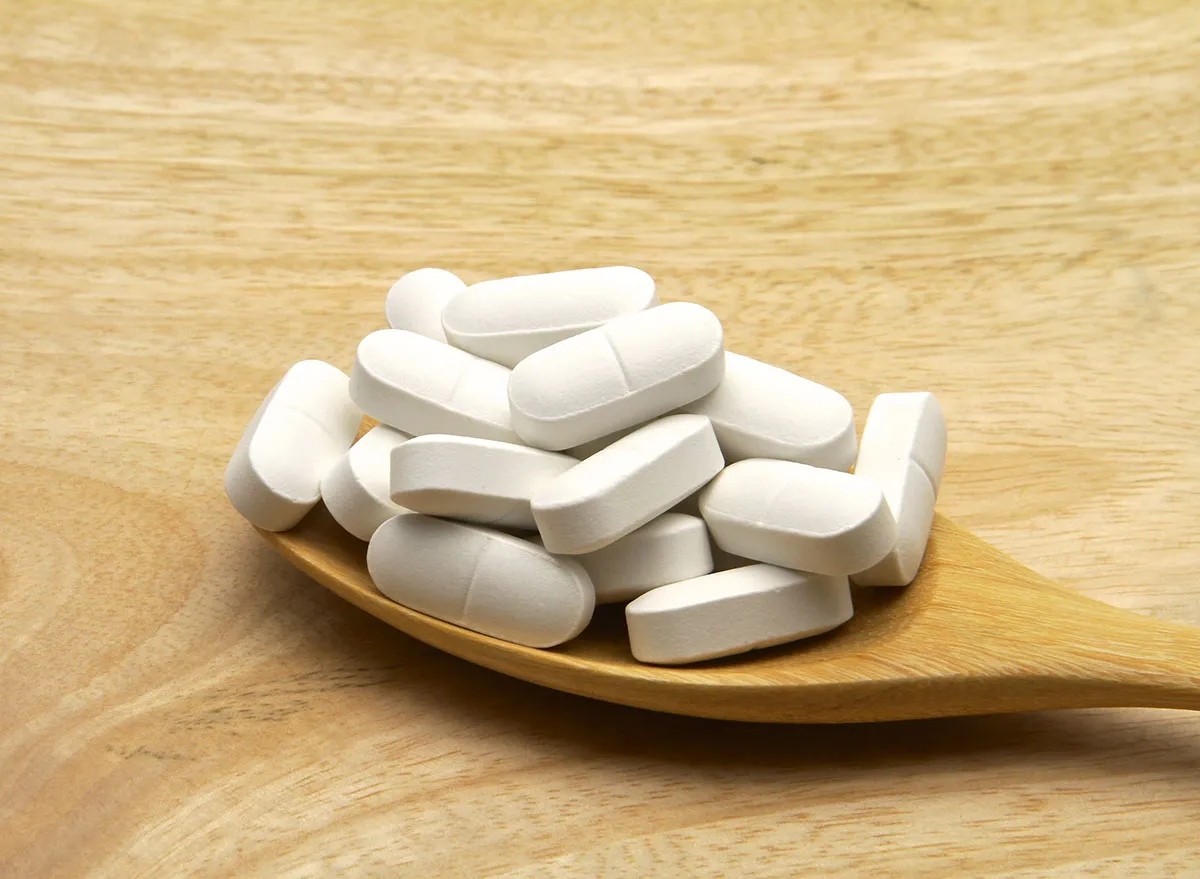
While fractures may be increasingly common as you age, that doesn't necessarily mean you should start adding calcium supplements to your regular routine.
"Calcium supplements are popular for improving bone health in people over 50, but some research suggests calcium supplements may be associated with increased risk of a heart attack," says Holly Klamer, MS, RDN, a writer at My Crohn's and Colitis Team, citing a 2010 study published in the BMJ. "As a 2019 review points out, more research is needed for calcium supplements and cardiovascular disease risk especially for those 50 years and older. The researchers advise that the recommended daily allowances of calcium should be achieved through dietary sources when possible, rather than supplements. If wondering about calcium supplements are best for you, consult your healthcare team," Klamer recommends.
Iron
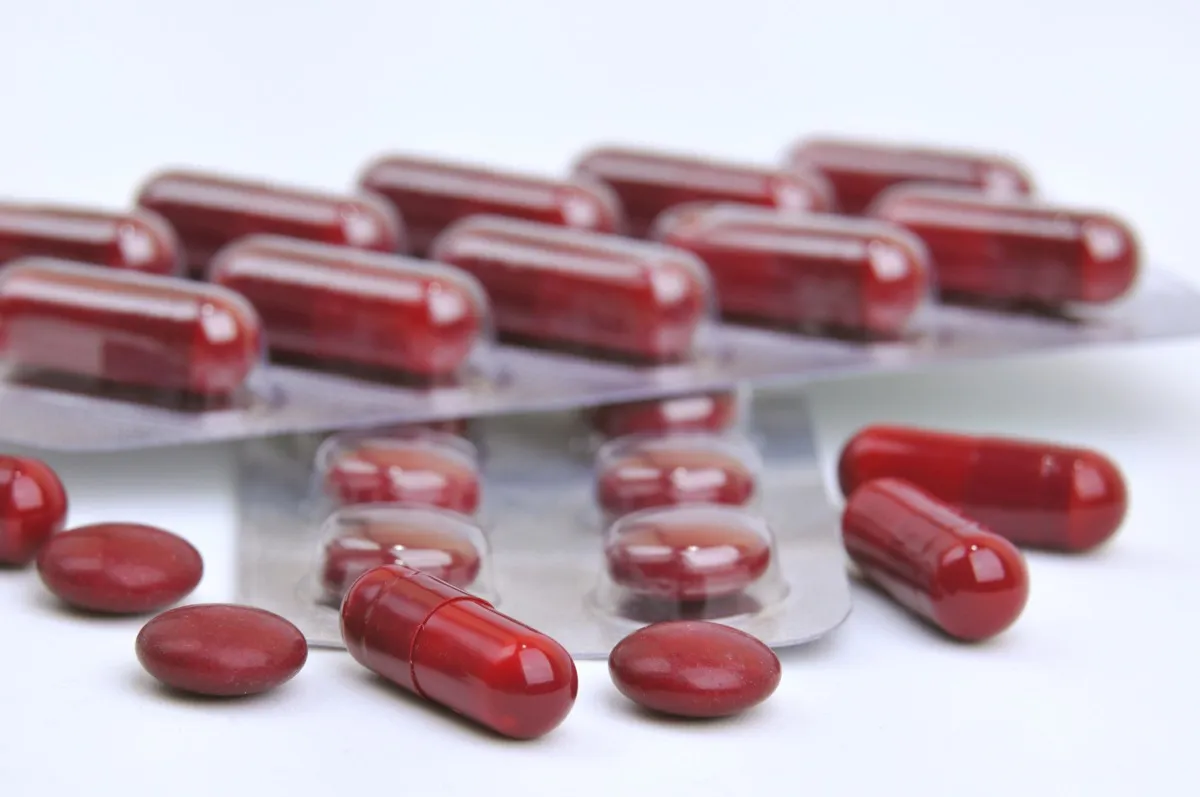
While iron deficiency anemia can have severe consequences for your health, getting too much iron can be problematic, as well.
"Women's iron needs decline after menopause due to the lack of blood loss with menstruation. The Recommended Dietary Allowance (RDA) for women less than 50 years old is 18 milligrams per day. For women 50 years and above, iron needs drop to 8 milligrams."
"Most multivitamins for women above 50 years old will provide adequate iron and taking an extra iron supplement for healthy women over 50 is not necessary unless directed from your medical team," says Klamer.
The Mayo Clinic reports that excessive iron intake may lead to a buildup of iron in your organs, which may contribute to diabetes, heart health issues, and liver dysfunction.
RELATED: One Major Side Effect of Not Taking an Iron Supplement, Says New Study
Dandelion root
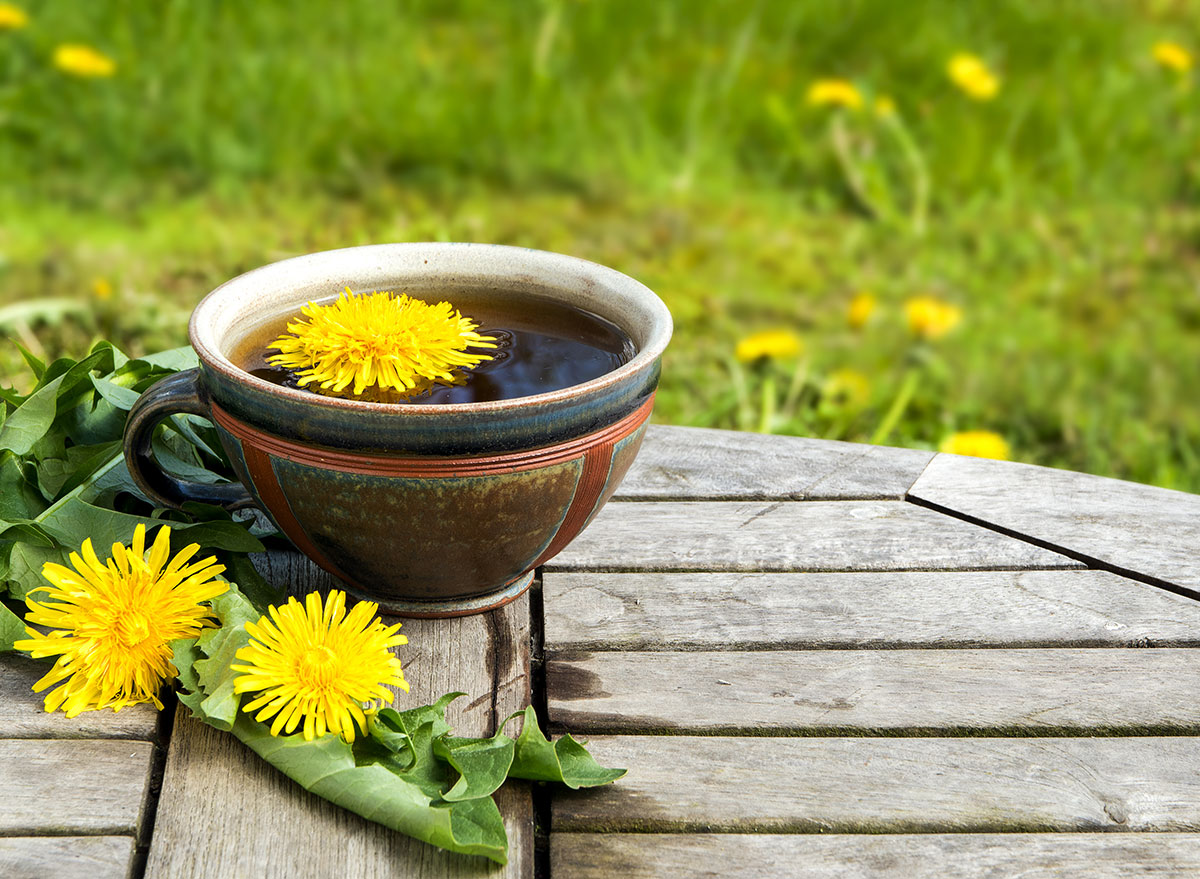
If you find yourself getting up to use the bathroom more frequently as you age, you're not alone. A 2012 review of research published in Reviews in Urology found that up to 62% percent of women and up to 59% of men in their 70s and 80s woke to urinate at least two times per night, while up to 18% of women and up to 17% of men between 20 and 30 years of age did the same.
"After the age of 50 or so, both women and men may notice an increased need to urinate at night. For women, the cause is decreased estrogen associated with menopause. For men, the cause may be an increase in prostate size. Researchers have shown that dandelion root increases both urinary frequency and volume," says physician Leann Poston, MD, MBA, MEd, an advisor for Impakt Fitness, citing a 2009 study published in the Journal of Alternative and Complementary Medicine. Poston says that if you do choose to take dandelion supplements, it's important to do so early in the day to avoid compromising your sleep.
RELATED: 16 Vitamins That are a Waste of Money, Say Experts
Licorice root
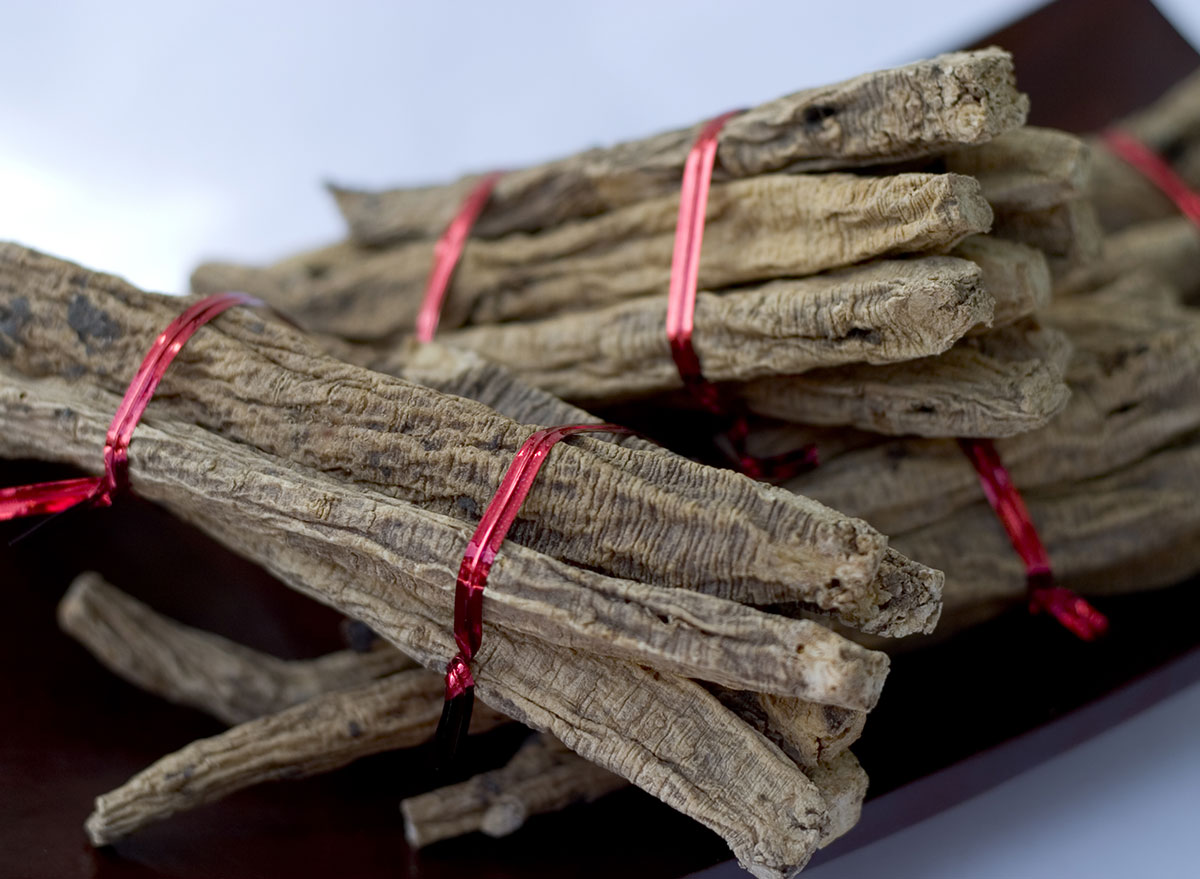
Approximately 45.4% of U.S. adults have high blood pressure, according to a 2020 report published by the Centers for Disease Control and Prevention (CDC). That number significantly increases with age, with hypertension affecting 54.5% of individuals from 40 to 59 and 74.5% of those 60 and over.
That means for many people over 50, taking supplements that are known to increase blood pressure can be a dangerous endeavor. "Licorice root tastes delicious, but if you are over 50, you may want to cut back on how much you eat. Licorice root increases blood pressure by increasing your blood volume and the resistance to blood flow in your arteries. With aging, blood pressure tends to increase anyway, which makes it even more important to consider dietary factors that may increase it," says Poston.
A 2017 study published in Scientific Reports found that, among a group of 22 healthy adults, daily consumption of licorice over a two-week period increased both systolic and diastolic blood pressure and stiffness in the large arteries.
If you want to get your blood pressure into a healthier range, check out The #1 Best Diet to Lower Your Blood Pressure, Says Dietitian, and for the latest healthy living news delivered to your inbox, sign up for our newsletter!
Read this next:
- I'm A Doctor And Warn You Never Take These Supplements
- Surprising Side Effects of Taking Fish Oil Supplements After 50
- How Much Vitamin D You Need at Every Age, Say Dietitians
